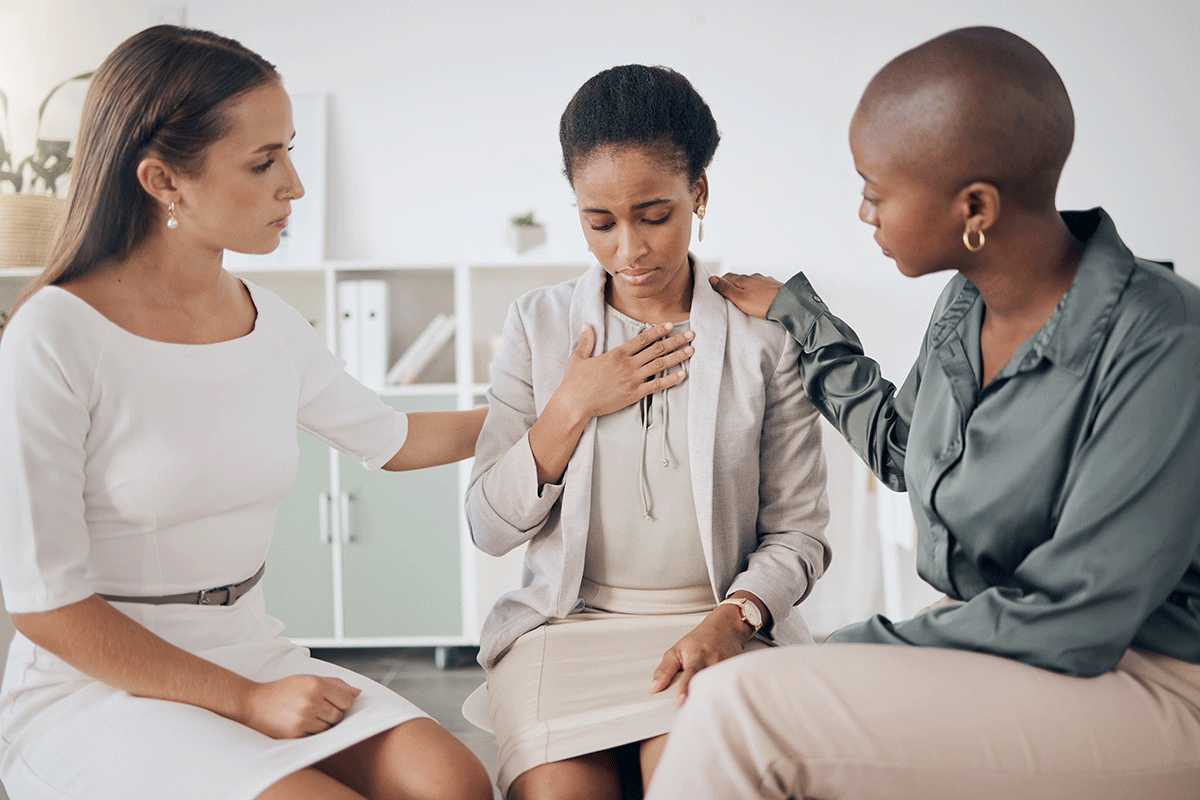Millions of adults struggle with depression, and this condition can have a wide-reaching impact on all areas of life. What’s more, it can range widely in intensity from one individual to another. For some, major depressive episodes are common. For others, they are a rarity. Sometimes people struggle with both depression and anxiety in alternation.
If you’re wondering how to help a friend with depression, know that resources are available to support you. The caring team at Colorado Medication Assisted Recovery has an evidence-based depression treatment program that can also account for any substance abuse that may be present. Call us at 833.448.0127 or reach out online to learn more and find depression treatment near you.
Signs That Depression Help May Be Needed
Major depressive disorder, also known as clinical depression, manifests differently for different people, and its exact causes are still being studied. Nonetheless, a number of common symptoms are helpful in identifying potential cases. Depression is first and foremost defined by low mood, but many other side effects exist as well. Usually, a person who could benefit from a formal diagnosis experiences both low mood and several associated symptoms. These occur during the majority of the day, almost every day for a period of two or more weeks, and include:
- Feelings of despair or hopelessness
- Frustration or anger
- Decreased interest in activities that previously brought joy or engagement
- Pervasive guilt or feeling oneself to be of little or no value
- Loss of perceived personal agency, the ability to change one’s life for the better
- Trouble concentrating or forming memories
- Low energy or lethargy
- Sleep disturbance, including insomnia or oversleeping
- Bodily pain without an obvious physical cause, especially headaches or other aching sensations, cramps, or indigestion
- Significant changes in appetite or weight, either increases or decreases
- Thinking about suicide or being dead
- Making actual suicide attempts
What It Looks Like to Get Help with Depression
While contending with depression can feel overwhelming, remember that many people have sought treatment and ultimately regained a sense of control, purpose, and joy in life. In an accredited treatment program, individuals coping with major depression often stand the best chance to make lasting positive changes. Such a program typically includes features like the following:
- Medication – Selective serotonin reuptake inhibitors (SSRIs) and serotonin and norepinephrine reuptake inhibitors (SNRIs) are common classes of antidepressants that can help reduce symptoms. They work by increasing the impact of naturally produced chemicals in the brain responsible for positive feelings. A doctor or psychiatrist may also prescribe anti-anxiety or antipsychotic medications depending on patients’ individual needs.
- Individual talk therapy – A licensed therapist can help patients gain valuable coping skills to apply when depression symptoms take up too much headspace. Cognitive-behavioral therapy is especially common in depression treatment. It provides effective strategies for evaluating self-defeating thoughts and feelings. Dialectical-behavioral therapy can also be a great choice since it adds mindfulness to the equation. This gives patients a greater ability to tolerate inner tension without fixating on or acting out intrusive feelings or thoughts. Trauma-informed therapy may likewise help if patients’ depression is linked to harmful past events.
- Dual diagnosis where appropriate – If a patient struggling with depression also abuses drugs or alcohol, a dual diagnosis may be given. This means that providers acknowledge potential links between the two issues and treat them at the same time. For example, a dual diagnosis patient might first receive medically assisted detox to help them recover from drug addiction. They might then join a support group related to substance recovery while simultaneously working with a therapist to uncover the link between their substance use and underlying mental health condition. A mood-regulating medication could also be prescribed.
Learn More About How to Help a Friend with Depression at Colorado Medication Assisted Recovery
If you or someone you care about is struggling with major depression, remember you’re not alone. Countless others are coping with similar issues, and there are many caring mental health providers who can intervene. Call Colorado Medication Assisted Recovery at 833.448.0127 or fill out our confidential online form to start the conversation. We’re looking forward to assisting you or your loved one on the journey toward better mental health.


























